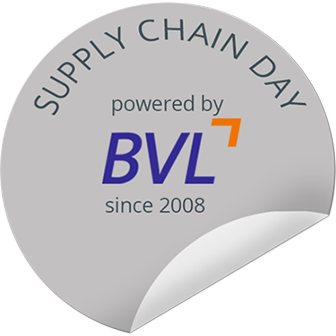Logistics is armed for the future

In the run-up to “Supply Chain Day” on April 10, 2025, experts from economic and practical logistics research discussed the resilience of supply chains in an online press conference today. Dr. Klaus Wohlrabe, Deputy Director of the ifo Center for Macroeconomics and Surveys, presented the results of a survey on the supply chain strategy of German companies for the first time in a public setting. In addition to new opportunities for logistics, these also bring with them the need for increased digitalization and risk management. Prof. Dr. Christian Kille from the Würzburg-Schweinfurt University of Applied Sciences and member and spokesperson for the “Logistikweisen” (logistics wise people) added to the discussion with an assessment of the current market situation and the outlook for the rest of the year. Despite economic challenges, an increasing resilience of the entire industry is apparent.
With an annual turnover of around 327 billion euros in 2023 and more than 3.3 million employees, logistics ranks as the third largest economic sector in germany, only just behind the automotive industry and retail. It is not only one of the country's most important employers, but also secures the supply of the economy and society. However, geopolitical conflicts and upheavals as well as the COVID-19 pandemic have made the vulnerability of supply chains particularly clear.
As part of the “Supply Chain Day” on April 10, 2025, which aims to raise awareness of the importance and system-relevant function of the sector, a virtual press conference was held today with Dr. Klaus Wohlrabe from the ifo Institute in Munich and Prof. Dr. Christian Kille from the Würzburg-Schweinfurt University of Applied Sciences. The discussion focused on the robustness of supply chains, their essential role in security of supply and concepts for strengthening their resilience.
ifo presents survey results on supply chain strategy
Dr. Klaus Wohlrabe, Deputy Director of the ifo Center for Macroeconomics and Surveys, presented the results of a survey on the supply chain strategy of German companies conducted by the ifo Institute on behalf of the EU Commission in March 2025 for the first time. Data was collected from companies in industry, trade (wholesale and retail), construction and services. The presentation focused on the following findings:
- Greater diversification of supply chains: Companies have reduced their dependencies by tapping into additional sources of supply.
- Expansion of warehousing: In response to supply bottlenecks, inventories - especially of critical primary products - have been increased, in some cases significantly.
- Adjustment of supplier relationships: The focus is increasingly on long-term contracts and on regional and European partners.
- Making production more flexible: By converting processes, some companies are now able to switch to alternative components in the event of material bottlenecks.
The economist then went on to discuss the implications for the logistics sector: “Increased demand for storage capacities, higher requirements for flexibility and resilience as well as the increasing regionalization of supply chains open up new opportunities, but also require adjustments. Digitalization is increasingly becoming a decisive competitive factor. The growing importance of forward-looking risk and scenario management is particularly noteworthy. In the future, logistics will have to be an even stronger part of strategic corporate planning - for example, through involvement in crisis teams or the development of early warning systems.”
Logistics experts' expectations for 2025
Prof. Dr. Christian Kille, spokesperson for the “Logistikweisen”, underpinned the discussion with assessments from the panel of logistics experts on the situation of the economic sector in the logistics year 2025. “The current situation in the logistics sector remains challenging. On the demand side, there are currently no prospects for positive development, even if there are hopes of a slight recovery towards the end of the year,” said the Professor of Retail Logistics and Operations Management. At the same time, supply continues to be characterized by cost pressure and intense competition, which makes further consolidation likely.
In terms of investment, the picture is mixed: While digitalization and automation projects are being driven forward, investments in assets and sustainability remain restrained due to economic uncertainties. Personnel budgets also remained at a high level - not only because of the shortage of workers, but also due to the increasing requirements resulting from the technologization of the industry.
Despite the challenging economic situation, however, it is clear that logistics is becoming increasingly resilient. Companies in the logistics sector have recognized social change and reacted accordingly. He also referred to logistical innovations - with which German logistics could defend its leading international position. Against the backdrop of a volatile global economy, the industry is also increasingly focusing on measures to increase productivity. Furthermore, the sector is leading the way in terms of sustainability, particularly in the area of logistics real estate. Finally, Prof. Kille noted that the political investment plans for infrastructure and the supporting measures for logistics can provide a basis for the further development of the sector.
Supply Chain Day set to kick off
After the successful start with the press conference, tomorrow, on Supply Chain Day, interested parties will have the chance to experience the diversity of logistics professions live and find out about career opportunities and further training opportunities. Numerous companies are opening their doors to mark the Europe-wide day of action. The e-commerce retailer Amazon is also participating as a premium partner for the fourth time in a row and is offering exciting insights at several locations. Last-minute participants can find out more about the program and events with free capacities at the following link.

